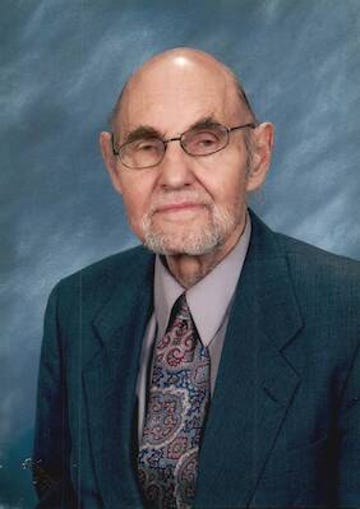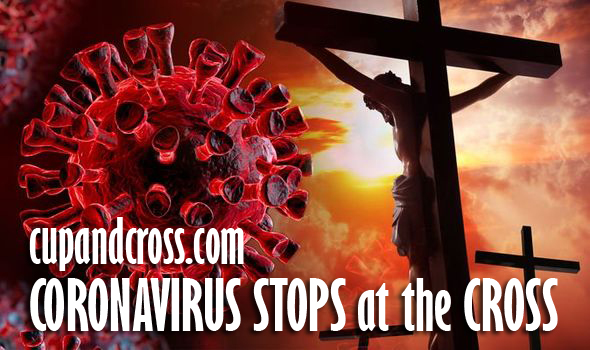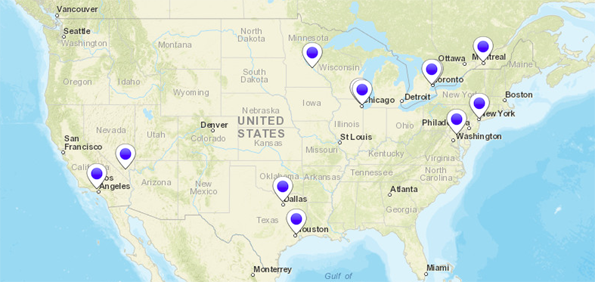In Memoriam: Dr. Albert W. Wardin Jr.
 Albert W. Wardin, Jr., prominent Baptist historian, died on November 14, 2022, at the age of 94, in Nashville, Tennessee. Albert was preceded in death by his beloved wife of 38 years, Lucile Peak Wardin, for whom he was a devoted, compassionate caregiver for the last 8 years of her life. Albert was also preceded in death by his parents, Albert W. Wardin, Sr., and Anna Klemm Wardin, his brothers Ferdinand and John, his sister Ardis, and his nephew Brad. He is survived by his sister, Doris Wardin Lemley, and nieces and nephews, David, Stephen, Margaret, Debbie, John, Karen, Daniel, Chris, Matthew and Julie. Born in Portland, Oregon, on March 11, 1928, Albert made his first public appearance as a bare-bottomed infant on the promotional calendar of the Fulton Park Dairy, the family business. Albert graduated from Lincoln High School in Portland, then received his B.A. degree from Willamette University, his Master’s degree from Stanford University, and Bachelor of Divinity degree from Western Baptist Seminary. He began his lifelong career in religious education at Western Baptist Seminary in Portland, teaching church history, and taught Baptist History at Judson Baptist College, where he served as Head of Library. Albert came to Nashville in 1967, joining the faculty of Belmont College. Early in his tenure at Belmont, he served a vital role in the restoration of Belmont mansion. Albert was the first President of the Belmont Mansion Historical Society and its foundation, authoring a history of the mansion. Albert taught, wrote and ministered at Belmont until his retirement. Albert met Lucile at Belmont. While leading a bible study group for male students, Albert contacted female faculty to lead a similar group for coeds. The search led Albert to Belmont’s new Dean of Women, Lucile Peak, who said “yes” to Albert’s request for help with the bible study group and, more importantly, said “yes” again to Albert’s marriage proposal a year later. Albert and Lucile shared a heart for world missions and international students. Albert and his mother personally smuggled Bibles into Russia and Romania on travels abroad. They befriended students on their travels, forming lifetime bonds. A sabbatical year in Kenya led them to Harrison Waithaka, who they sponsored to attend Belmont. Baptist missions in Shanghai China led them to a lifelong relationship with their “son” Qin Bin Lin. A prolific author, Albert wrote 12 books and numerous articles centering on Baptist history, with a specialization in the Protestant church in Russia. He amassed an extensive collection of Baptist materials, especially on Russian Baptists. His most important works were Tennessee Baptists: A Comprehensive History and On the Edge: Baptists and Other Free Church Evangelicals in Tsarist Russia. The reference room of the Southern Baptist Historical Library and Archives is named in his honor. Albert supported missions and Baptist education and heritage locally, particularly the library of the American Baptist College, the Tennessee Baptist Historical Society and the Mill Creek Baptist Church graveyard, and globally as well. Albert made significant contributions to and was instrumental in the establishment of the Cambodia Baptist Union and Baptist Center in Bulgaria. A member of First Baptist Church-Nashville since 1967, Albert served as a Deacon, on the Missions Committee, and taught Sunday School and Training Union. He traveled each Sunday for years to teach Sunday School to inner-city youth at Carroll Street Chapel, now the Church of the Messiah. A child of God, a friend and citizen of the world, steward, preserver and chronicler of Baptist history and heritage, Albert leaves a lasting legacy. Visitation will be held Tuesday November 22 from 12 noon to 1 p.m., at First Baptist Church, Seventh and Broadway, Nashville, followed by a Celebration of Life worship service at the church beginning at 1 p.m., led by Tony Rankin. Entombment will follow at 2 p.m., at the mausoleum of Woodlawn-Roesch-Patton Funeral Home, 660 Thompson Lane, Nashville, led by Frank Lewis. In lieu of flowers, contributions may be made to the Albert and Lucile Wardin Endowment Fund at Belmont University.
Albert W. Wardin, Jr., prominent Baptist historian, died on November 14, 2022, at the age of 94, in Nashville, Tennessee. Albert was preceded in death by his beloved wife of 38 years, Lucile Peak Wardin, for whom he was a devoted, compassionate caregiver for the last 8 years of her life. Albert was also preceded in death by his parents, Albert W. Wardin, Sr., and Anna Klemm Wardin, his brothers Ferdinand and John, his sister Ardis, and his nephew Brad. He is survived by his sister, Doris Wardin Lemley, and nieces and nephews, David, Stephen, Margaret, Debbie, John, Karen, Daniel, Chris, Matthew and Julie. Born in Portland, Oregon, on March 11, 1928, Albert made his first public appearance as a bare-bottomed infant on the promotional calendar of the Fulton Park Dairy, the family business. Albert graduated from Lincoln High School in Portland, then received his B.A. degree from Willamette University, his Master’s degree from Stanford University, and Bachelor of Divinity degree from Western Baptist Seminary. He began his lifelong career in religious education at Western Baptist Seminary in Portland, teaching church history, and taught Baptist History at Judson Baptist College, where he served as Head of Library. Albert came to Nashville in 1967, joining the faculty of Belmont College. Early in his tenure at Belmont, he served a vital role in the restoration of Belmont mansion. Albert was the first President of the Belmont Mansion Historical Society and its foundation, authoring a history of the mansion. Albert taught, wrote and ministered at Belmont until his retirement. Albert met Lucile at Belmont. While leading a bible study group for male students, Albert contacted female faculty to lead a similar group for coeds. The search led Albert to Belmont’s new Dean of Women, Lucile Peak, who said “yes” to Albert’s request for help with the bible study group and, more importantly, said “yes” again to Albert’s marriage proposal a year later. Albert and Lucile shared a heart for world missions and international students. Albert and his mother personally smuggled Bibles into Russia and Romania on travels abroad. They befriended students on their travels, forming lifetime bonds. A sabbatical year in Kenya led them to Harrison Waithaka, who they sponsored to attend Belmont. Baptist missions in Shanghai China led them to a lifelong relationship with their “son” Qin Bin Lin. A prolific author, Albert wrote 12 books and numerous articles centering on Baptist history, with a specialization in the Protestant church in Russia. He amassed an extensive collection of Baptist materials, especially on Russian Baptists. His most important works were Tennessee Baptists: A Comprehensive History and On the Edge: Baptists and Other Free Church Evangelicals in Tsarist Russia. The reference room of the Southern Baptist Historical Library and Archives is named in his honor. Albert supported missions and Baptist education and heritage locally, particularly the library of the American Baptist College, the Tennessee Baptist Historical Society and the Mill Creek Baptist Church graveyard, and globally as well. Albert made significant contributions to and was instrumental in the establishment of the Cambodia Baptist Union and Baptist Center in Bulgaria. A member of First Baptist Church-Nashville since 1967, Albert served as a Deacon, on the Missions Committee, and taught Sunday School and Training Union. He traveled each Sunday for years to teach Sunday School to inner-city youth at Carroll Street Chapel, now the Church of the Messiah. A child of God, a friend and citizen of the world, steward, preserver and chronicler of Baptist history and heritage, Albert leaves a lasting legacy. Visitation will be held Tuesday November 22 from 12 noon to 1 p.m., at First Baptist Church, Seventh and Broadway, Nashville, followed by a Celebration of Life worship service at the church beginning at 1 p.m., led by Tony Rankin. Entombment will follow at 2 p.m., at the mausoleum of Woodlawn-Roesch-Patton Funeral Home, 660 Thompson Lane, Nashville, led by Frank Lewis. In lieu of flowers, contributions may be made to the Albert and Lucile Wardin Endowment Fund at Belmont University.
2022 in RETROSPECT
Our 20th anniversary, also marked 20 years since Kathryn first came to Bulgaria and since we ministered there together for the first time. Time flies quickly and 20 years of mission work together has left lots to talk about.
Apart from the pandemic restrictions in Bulgaria and the war on Ukraine, 2022 began with World Missions finalizing the sale of our Central Church Ministry Center in Sofia. This sudden decision closed another 20-year gap since we began building the Center in 2001. As the investment has doubled in the years past, now it will be virtually impossible to turn around and purchase in downtown Sofia another lot (nonetheless a building) of the same size for the ministry of the Bulgarian Church of God.
While waiting to lift pandemic restrictions at the start of 2022, our ministry in Bulgaria was slammed by another major obstacle with the escalating Ukraine war, which began during our trip in Bulgaria in 2014. For Bulgaria, this meant more restrictions and doubling if not tripling the migrant flood in the country within a few short months. Unfortunately, our ministry among them near the Turkish border and now at the Black Sea lacks the building infrastructure and capability to spread to the hundreds of thousands of migrants passing through the country.
With this in mind, on Labor Day weekend starting with the Conference of Bulgarian Churches in North America, we launched our Revival Harvest Campaign just like we have done in the past 20 years. Preaching once again in the Carolinas, Georgia, Florida, Tennessee and beyond was exciting. We ended up extending the length of the campaign four times, even after we were ready to close it at the end of October. In November, the Lord swiftly opened another door for us to present our new Bulgarian-Spanish New Testament in the Dominican Republic.
We’ve been able to keep our services along with our weekly Bible Broadcasts in Bulgaria. Without a central building, our Fall and Christmas services were held only in local churches. With the current COVID restrictions in play, it is virtually impossible to rent auditoriums for large gatherings as we have done in the past. As soon as the weather there allows it, we will return to open air and camp services for special occasions. The building situation is turning to be of concern and continues prayer focus in the post-pandemic reality. We are also working on several Bible projects in the spring, that will be finalized before the summer in time to aid our work on the Balkans in 2023. Revival must go on!
HAPPY NEW YEAR

CORONAVIRUS STATEMENT by Cup & Cross Ministries International
CORONAVIRUS STATEMENT by Cup & Cross Ministries International
The United Nations have just declared the Coronavirus (COVID-19) a global pandemic. Most European flights are suspended and a number of countries in our area of ministry remain closed. Alternatively, CDC has issued a detail set of resources for faith-based communities and their leaders for preventing COVID-19. As a result, churches are cancelling their Sunday services, conferences and international assemblies.
Having full awareness of the above and convinced by the Bible that “It is not the healthy who need a doctor, but the sick,” according to Mark 2:17
WE HEREBY AFIRM that:
- Divine healing [is] provided for all in the Atonement (Psalm 103:3; Isaiah 53:4, 5; Matthew 8:17; James 5:14-16; 1 Peter 2:24 – 42nd A., 1948, pp. 31, 32)
- “The prayer of a righteous person is powerful and effective” (James 5:16)
- And that there is still “power, power, wonder working power in the blood of the Lamb” (L.E. Jones, 1899)
For 30 years now, every public prayer we have held around the Globe has ended with these words:
“WE COMMAND every sickness, every disease, every virus
and ever infection, every tumor and every cancer
to leave the body of the believer in the name of Jesus.”
This prayer includes the Coronavirus (COVID-19) as well and therefore
WE FIRTHER AFIRM:
- Our commitment to REVIVAL especially in the year 2020
- Our long-scheduled Revival Harvest Campaign in celebration of the First Centennial of Pentecostalism in Bulgaria (1920-2020)
- Our readiness to respond to every church, state and national office that contacts us with a request to schedule our ministry in due time.
The Cross of Calvary cancels every coronavirus!
Revival must go on…
Sincerely,
Dr. Dony & Kathryn Donev
Cup & Cross Ministries International
Merry Christmas
CHRISTMAS BOOK SALE
Since 2011, we have authored over two dozen books related to our ministry and mission work in Eastern Europe. As several of the prints are now almost exhausted and second/third editions and several new titles are under way, we are releasing all currently available editions in a Christmas sale through the month of December. All titles are available at up to 30% off and Amazon offers free shipping and extra savings for bundle purchases.
Bulgarian Evangelical Churches in America (2022 Report)
CURRENTLY ACTIVE CHURCHES/CONGREGATIONS:
Bulgarian Evangelical Churches in Chicago (2017 Report)
Bulgarian Evangelical Churches in Texas (2017 Report)
Bulgarian Evangelical Churches – West Coast (2017 Report)
- Los Angeles (occasional/outreach of the Foursquare Church – Mission Hills, CA)
- Las Vegas (outreach of the Foursquare Church – http://lasvegaschurch.tv)
- San Francisco (occasional/inactive since 2012, Berkeley University/Concord, CA)
- Phoenix, Arizona
Bulgarian Evangelical Churches Canada (2017 Report)
- Toronto (inactive since 2007)
- Toronto/Slavic (active since 2009)
- Montreal (occasional/inactive since 2012)
Atlanta (active since 1996)
CURRENTLY INACTIVE CHURCHES/CONGREGATIONS:
- New York, NY (currently inactive)
- Buffalo, NY (occasional/inactive)
- Jacksonville, FL (occasional/inactive since 2014)
- Ft. Lauderdale / Miami (currently inactive)
- Washington State, Seattle area (currently inactive)
- Minneapolis, MN (occasional/inactive since 2015)
READ MORE:
- First Bulgarian Church in Chicago Opened in 1907
- Gateway Cities for Bulgarian Evangelical Churches
- How to Start a Bulgarian Church in America from A-to-Z
- Unrealized Spiritual Harvest as a Paradigm for Cross-Cultural Ministries among Migrant and Disfranchised Ethnic Groups in America Today
13 Years of Chaplaincy on the High Seas
 We began our literal journey of ministry on the high seas in 2009. After exploring the opportunity for several years’ prior and submitting applications to various chaplaincy organizations which dealt with such ministry, the doors finally opened for Cup and Cross.
We began our literal journey of ministry on the high seas in 2009. After exploring the opportunity for several years’ prior and submitting applications to various chaplaincy organizations which dealt with such ministry, the doors finally opened for Cup and Cross.
This search for a ministerial identity and its proper application in the real world coincided with the start of the Master’s in Chaplaincy Ministry Program which we designed for the Bulgarian Evangelical Theological Institute in Sofia around 2008-2009. The long standing relationships with professors, active military chaplains from various fields and countries, and the wisdom of several Generals in the field helped us calibrate our ministry focus with what is needed by real people in the real world.
The new fad “to be real” is not enough in a realistic ministry setting. When 25ft. high storm waves beat the aft and the ship is thrown towards the dark wall of ocean waters ahead, one cannot help but “to be real” and depend on a very real and skilled crew. A captain alone cannot run the boat through a storm even if all systems are reported working. It is the crew deep down in the engine room and making its way on the slippery deck that makes it all happen.
The Crew. Some of them have not seen their families for months or even a year at times. They struggle with the same fears and anxieties as the rest of us. Except, while the rest of us can hold on to something for dear life, the crew is obligated by duty to continue to serve and move the boat ahead. The little chapel on the top deck becomes a passage to a lagoon past the riffs of stormy life where stories are shared, prayers are lifted up together and human lives are reclaimed anew for Heaven.
We have found these nontraditional paths of travel and ministry yielding the most unique encounters and connections for Kingdom growth. Our family is thankful for these 10 years and looking forward to even more means of ministry outside of the four church walls. If you would like for us to come to your church as share our journey feel free to reach out to us.
7 LAST DAYS SIGNS in 2022
Russia recently announced a stoppage of the flow of gas to the EU through the Nord Stream 1 pipeline and that the flow will not be restarted until the EU cancels its economic sanctions on Russia.
Some EU citizens are starting to suffer, and they know their suffering is going to get much worse when winter arrives.
It is not surprising:
- That the value of the Euro is at a 20-year low.
- That the high cost of utilities and food have triggered a cost-of-living problem, and many EU citizens are moving toward poverty (owning nothing but not happy).
- That more than 70,000 Czechoslovakian citizens recently marched on their capital (Prague) to protest the situation and to call for an end to the sanctions on Russia.
- That all the EU nations are anticipating more protests in the coming months.
- That this is happening and the rider on the black horse during the Tribulation Period is hyper-inflation, economic collapse, and famine (Rev. 6:5-6).
(More: On Sept. 7, 2022, EU Commission Pres. Ursula von der Leyen announced that the EU plans to impose mandatory electricity rationing and price caps on natural gas from Russia. Vladimir Putin called the plan “stupid” and said prices will go even higher.)
(More: On Sept. 8, 2022, it was reported that tens of thousands and perhaps hundreds of thousands of the sick and elderly will die; think population reduction.)
(More: On Sept. 8, 2022, it was reported that a failure of EU banks this winter will impact banks in the U.S. and the value of the dollar—major economic problems could be just months away.)
(More: On Sept. 8, 2022, it was reported that proposed legislation in Switzerland requires citizens in gas-heated buildings to keep their thermostat below 66.2 degrees F this winter. Intentional violators will be fined and could face up to three years in prison.)
(More: On Sept. 14, 2022, it was reported that the sale of appliances and other expensive items is in decline because poverty is spreading.)
Be aware that some reports say this is happening because the EU is following the World Economic Forum (WEF) agenda, and it will happen to every nation on earth (including the U.S.) because the WEF agenda is a global policy.
(My opinion: The problems in the EU and the WEF agenda guarantee that the mess this world is in will get much worse before the end of winter. The upcoming election could be critical for the survival of America.)
When asked about the signs of His coming (at the end of the Tribulation Period), Jesus replied that there will be distress of nations, with perplexity (Luke 21:25).
Many prophecy teachers have long expected global problems that will cause people to accept “the man with a plan” who will rise in the EU and be known as the Antichrist.
At the time of this writing:
- The media has reported that Britain’s Queen Elizabeth II has passed away, and Charles is preparing to take the throne as the King of England.
- Charles has attended globalist Bilderberg meetings, has been an extreme climate change fanatic, co-hosted a WEF meeting, and is a friend of Klaus Schwab, but he now says he is going to change because the King is not supposed to be political (his change may be questionable, but time will tell).
- At the UN COP26 meeting, Charles called for trillions (trillions, not billions) of dollars to be available to someone (a male ruler; some think he was referring to “the man with a plan;” the Antichrist) to immediately change the global economy, go green, and bring about the WEF Great Reset.
https://www.youtube.com/watch?v=CMRjfKhCpSo&t=17s
Here are more events that seem to indicate that we are getting close.
One, concerning climate change and going green in the U.S.: on Sept. 8, 2022, it was reported that “Californians are being asked to cut back on cooling their homes and using large appliances to prevent rolling blackouts as the state buckles under the weight of its outdated infrastructure and increasing reliance on unreliable ‘clean energy’ sources.”
Governor Newsom advised citizens to:
- Set their thermostats at 78 degrees.
- Turn off unnecessary lights.
- Avoid using large appliances.
According to the report, part of California’s power shortage problem is its shift to the WEF Great Reset plan.
The report quotes WEF founder Klaus Schwab as saying every “country, from the United States to China, must participate, and every industry, from oil and gas to tech, must be transformed.”
(FYI: On Sept. 1, 2022, it was reported that a power company took control of the smart thermostats in about 22,000 homes in Colorado, and the homeowners could not control the temperature in their own homes.)
Two, concerning deceit, Pres. Biden (the “big man” in the Biden criminal cartel) recently addressed the nation twice:
There are too many lies and too much deceit to comment on, but among other things, the “big man” said (words in parentheses are mine):
- “MAGA (Make America Great Again) Republicans represent an extremism that threatens the very foundations of our Republic.”
- “MAGA forces are determined to take this country backward — backward to an America where there is no right to choose (no right to an abortion), no right to privacy, no right to contraception, no right to marry who you love (no right to same-sex marriage).”
- “MAGA Republicans look at America and see carnage and darkness and despair. They spread fear and lies. Lies told for profit and power.”
- MAGA Republicans “are destroying American democracy.”
Notice that Biden (who calls himself a good Catholic):
- Opposes Making America Great Again.
- Champions abortion (against his Catholic faith) and same-sex marriage (against the Scriptures).
- Accuses MAGA Republicans of lying (even though he lied about uniting the U.S. during his campaign, has changed his position on abortion and same-sex marriage from against to for, is lying about Hunter, lying about inflation, lying about the U.S. border with Mexico being secure, etc.).
- Wants citizens to believe that MAGA Republicans are destroying American democracy at the same time that he is working to destroy American democracy by bringing in the New World Order.
“Woe unto them that call evil good, and good evil; that put darkness for light, and light for darkness; that put bitter for sweet, and sweet for bitter! Woe unto them that are wise in their own eyes, and prudent in their own sight! Woe unto them that are mighty to drink wine, and men of strength to mingle strong drink: Which justify the wicked for reward, and take away the righteousness of the righteous from him!” (Isa. 5:20-23).
(Something to think about: During his presidency, Biden has spent more time and money trying to kill babies in their mother’s womb than he has spent trying to get baby formula for those babies fortunate enough to be born.)
Three, concerning Israel having silver and gold, cattle and goods in the latter years and latter days: Israel is expected to start pumping gas at its big Leviathan field in about two weeks.
Some prophecy teachers have long believed that Israel’s oil and natural gas could be the hook in Gog’s jaw that leads to the Battle of Gog and Magog.
Four, concerning the coming economic collapse: U.S. Treasury Secretary Janet Yellen recently warned that the Federal Reserve strategy to bring down inflation could launch the nation into a recession.
Five, concerning the economy and a coming global economic collapse during the Tribulation Period: on Sept. 13, 2022, it was reported that the U.S. inflation rate is up slightly to 8.3%.
This sent the Dow Jones Stock Market into a steep decline, and it lost 1276 points by the end of the day.
While this was going on, Biden was celebrating his $70 billion falsely named Inflation Reduction Act on the White House lawn.
Biden has now added $4.8 trillion to the national debt (which is now approaching $31 trillion) in less than two years, and he wants to keep spending.
Six, concerning persecution, censorship, and corruption of the DOJ and FBI: on Sept. 13, 2022, MyPillow CEO Mike Lindell was approached by FBI agents and asked questions about Dominion voting machines (possibly used for election fraud); they served him with a warrant and seized his cell phone.
(More: Just one day before the seizure of Lindell’s phone, the U.S. Dept. of Justice (DOJ) admitted that it recently served more than 40 subpoenas on associates of former Pres. Trump and seized the cell phones of at least two of Trump’s top advisors. The DOJ and FBI are supposed to treat everyone the same. They are seizing phones from Trump associates, but they helped Hillary Clinton destroy hers.)
Finally, are you Rapture Ready?
If you want to be rapture ready and go to heaven, you must be born again (John 3:3). God loves you, and if you have not done so, sincerely admit that you are a sinner; believe that Jesus is the virgin-born, sinless Son of God who died for the sins of the world, was buried, and raised from the dead; ask Him to forgive your sins, cleanse you, come into your heart and be your Saviour; then tell someone that you have done this.
Preparing for the Man with a Plan :: By Daymond Duck
Bulgarian Evangelical Churches in the European Union (2022 Report)
- Bulgarian Evangelical Churches in Germany
- Bulgarian Evangelical Churches in Spain
- Bulgarian Evangelical Churches in England
- Bulgarian Evangelical Churches in France
- Bulgarian Evangelical Churches in Belgium
- Bulgarian Evangelical Churches in Italy
- Bulgarian Evangelical Churches in Cyprus
- Bulgarian Evangelical Churches in Crete
READ MORE:












